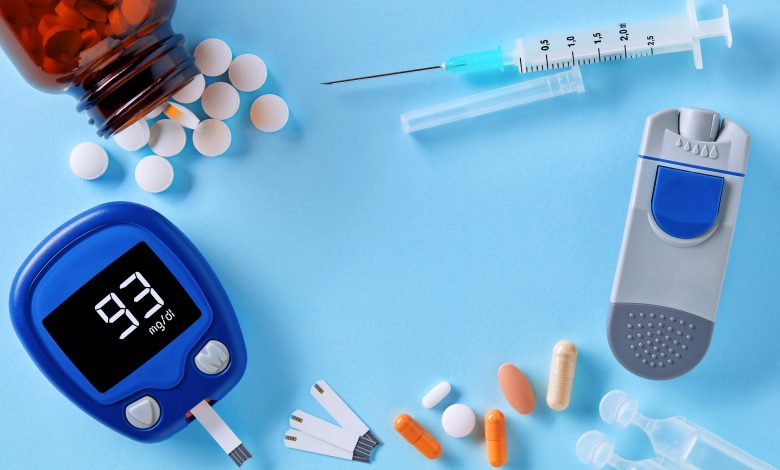Understanding Diabetes: Symptoms, Management, and Advances in Treatment

Introduction
A Growing Health Concern
Diabetes is a widespread chronic condition that affects millions worldwide. According to the Centers for Disease Control and Prevention (CDC), more than 37 million Americans have diabetes, and over 96 million are prediabetic.
Many people may not realize they have diabetes until complications arise. However, early detection and proper management can help improve long-term health outcomes. In this article, we’ll explore:
✔ The different types of diabetes
✔ Early symptoms to watch for
✔ Effective diabetes management strategies
✔ Recent advancements in diabetes treatment
What is Diabetes?
Diabetes is a condition that affects how the body processes blood sugar (glucose). The hormone insulin helps move glucose from the bloodstream into the cells, where it’s used for energy. However, in diabetes, the body either doesn’t produce enough insulin or doesn’t use it effectively, leading to high blood sugar levels.
Over time, uncontrolled diabetes can increase the risk of heart disease, kidney disease, nerve damage, and vision problems.
Types of Diabetes
There are three main types:
Type 1 Diabetes – An autoimmune condition where the body attacks insulin-producing cells. People with type 1 diabetes require insulin therapy.
Type 2 Diabetes – The most common form, where the body becomes resistant to insulin. Lifestyle factors and genetics both play a role.
Gestational Diabetes – Occurs during pregnancy and may increase the risk of developing type 2 diabetes later.
Additionally, prediabetes is when blood sugar levels are elevated but not yet in the diabetic range. Lifestyle changes can help prevent its progression.
Early Symptoms of Diabetes
Symptoms may develop gradually, and some people may not experience noticeable signs. However, common early symptoms include:
Frequent urination
Increased thirst
Unexplained weight loss
Fatigue
Blurred vision
Slow-healing wounds
Tingling or numbness in the hands and feet
If you experience these symptoms, consult a healthcare professional for evaluation.
Managing Diabetes: Lifestyle and Medical Approaches
1. Diet & Nutrition
Balanced nutrition plays a key role in blood sugar management. Recommended strategies include:
✔ Reducing sugar and refined carbohydrates
✔ Eating more fiber-rich foods (vegetables, whole grains, legumes)
✔ Choosing healthy fats (avocados, nuts, olive oil)
✔ Staying hydrated
✔ Practicing portion control
2. Physical Activity
Regular exercise can help improve insulin sensitivity and blood sugar levels. Activities such as:
✔ Walking, jogging, or cycling
✔ Strength training
✔ Yoga and stretching
Even small increases in physical activity can have a positive impact on health.
3. Weight Management
Maintaining a healthy weight may help with blood sugar control. Some individuals with type 2 diabetes see improvements in glucose levels through lifestyle changes, but results vary. Consult a healthcare professional for personalized advice.
4. Medication & Insulin Therapy
For some, lifestyle changes alone may not be enough, and medications or insulin therapy may be necessary. New advancements in diabetes medications, such as GLP-1 receptor agonists, are improving treatment options.
Recent Advances in Diabetes Treatment
Ongoing research is leading to new technologies and treatments:
✔ Artificial Pancreas – A system that monitors glucose levels and delivers insulin automatically.
✔ Stem Cell Therapy – Scientists are exploring ways to regenerate insulin-producing cells.
✔ Non-Invasive Glucose Monitoring – Future devices may eliminate the need for frequent finger pricks.
While these innovations offer hope, it’s important to discuss options with a healthcare provider.
Conclusion: Taking Control of Your Health
Diabetes is a manageable condition, and early detection is key. By maintaining a healthy lifestyle, staying informed, and working with healthcare professionals, individuals can take steps to support their long-term well-being.
Disclaimer
This article is for informational purposes only and is not a substitute for professional medical advice. Always consult a healthcare provider for diagnosis, treatment, and medical guidance regarding diabetes or any other health condition.




